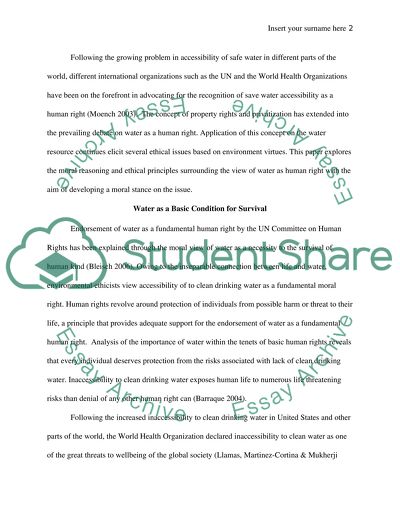Cite this document
(Water as a Human Right Research Paper Example | Topics and Well Written Essays - 2000 words, n.d.)
Water as a Human Right Research Paper Example | Topics and Well Written Essays - 2000 words. Retrieved from https://studentshare.org/environmental-studies/1596928-ethical-issues-in-bottled-water-is-bottled-water-ethical
Water as a Human Right Research Paper Example | Topics and Well Written Essays - 2000 words. Retrieved from https://studentshare.org/environmental-studies/1596928-ethical-issues-in-bottled-water-is-bottled-water-ethical
(Water As a Human Right Research Paper Example | Topics and Well Written Essays - 2000 Words)
Water As a Human Right Research Paper Example | Topics and Well Written Essays - 2000 Words. https://studentshare.org/environmental-studies/1596928-ethical-issues-in-bottled-water-is-bottled-water-ethical.
Water As a Human Right Research Paper Example | Topics and Well Written Essays - 2000 Words. https://studentshare.org/environmental-studies/1596928-ethical-issues-in-bottled-water-is-bottled-water-ethical.
“Water As a Human Right Research Paper Example | Topics and Well Written Essays - 2000 Words”, n.d. https://studentshare.org/environmental-studies/1596928-ethical-issues-in-bottled-water-is-bottled-water-ethical.


